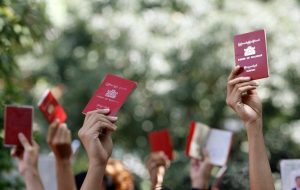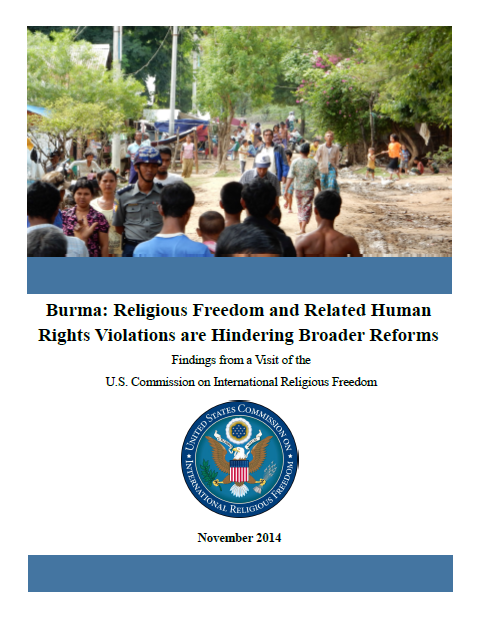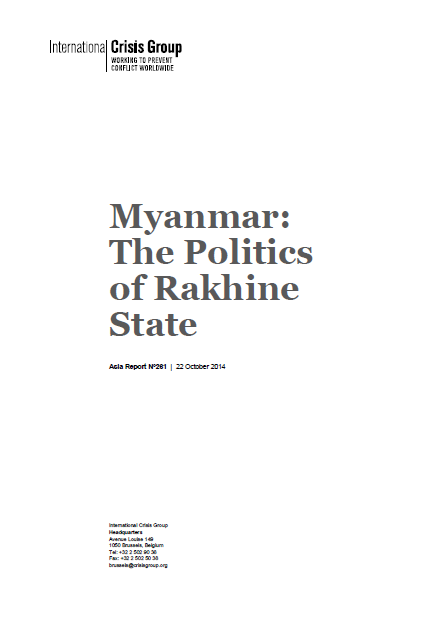Posts Tagged ‘Citizenship Law’ (21 found)
Blacklist of Border-based Pro-democracy and Rights Activists Must be Removed to Ensure Greater Civil Society Space
 40 civil society organizations (CSOs) operating along Burma’s borders submitted an open letter directed to Daw Aung San Suu Kyi this past week. The letter, released on 25 July, 2016, made a request for the greater inclusion of border-based CSOs during the transition process […]
40 civil society organizations (CSOs) operating along Burma’s borders submitted an open letter directed to Daw Aung San Suu Kyi this past week. The letter, released on 25 July, 2016, made a request for the greater inclusion of border-based CSOs during the transition process […]
BROUK Welcomes US Senate Resolution on Rohingya
Burmese Rohingya Organisation UK today welcomed the introduction of a Resolution in the US Senate condemning all forms of persecution and discrimination against the Muslim Rohingya ethnic group from Burma. BROUK would like to express many thanks to US Senator Menedez and Senator Mark Kirk for introducing this resolution. […]
• • •Myanmar: A Tipping Point for Rohingya Rights?
 Two years after a wave of violence hit the region, Myanmar’s Rakhine State has become a segregated zone. Two million ethnic Rakhine live apart from 1.2 million stateless Rohingya, who are trapped inside displacement camps or barred from leaving their villages. Ending this segregation and protecting the rights of the Rohingya are necessary components of Myanmar’s move toward democracy. However, the Rakhine leadership has rejected – both politically and with force – any reintegration of the two communities, and it is seeking to exclude the Rohingya from any role in the state’s development, distribution of resources, and political representation. […]
Two years after a wave of violence hit the region, Myanmar’s Rakhine State has become a segregated zone. Two million ethnic Rakhine live apart from 1.2 million stateless Rohingya, who are trapped inside displacement camps or barred from leaving their villages. Ending this segregation and protecting the rights of the Rohingya are necessary components of Myanmar’s move toward democracy. However, the Rakhine leadership has rejected – both politically and with force – any reintegration of the two communities, and it is seeking to exclude the Rohingya from any role in the state’s development, distribution of resources, and political representation. […]
Burma: Religious Freedom and Related Human Rights Violations are Hindering Broader Reforms
The dramatic political developments in Burma in recent years are of historical and geopolitical significance. Bur-ma has progressed much further than most might have imagined possible only a few short years ago. Despite these achievements, Burma still has a long journey along the road to democracy and respect for human rights. Serious violations of religious freedom and human rights continue, accompanied by disturbing evidence of prejudice and intolerance, trends that will inevitably and dramatically impact the prospects for a brighter future. In short, the political reform process in Burma is at great risk of deteriorating if religious freedom and the right to equal treatment under the law are not honored and protected. […]
• • •Burma: USCIRF Issues Report on Religious Freedom and Related Human Rights Violations
WASHINGTON, DC – On the eve of President Obama’s November 12-14 trip to Burma, the U.S. Commission on International Religious Freedom (USCIRF) today released a new report, “Burma: Religious Freedom and Related Human Rights Violations are Hindering Broader Reforms.” The report and its recommendations reflect a USCIRF Commissioner-level visit to Burma in August 2014 by Commissioners M. Zuhdi Jasser and Eric P. Schwartz and two USCIRF staff. […]
• • •Myanmar: The Politics of Rakhine State
The situation in Rakhine State contains a toxic mixture of historical centre-periphery tensions, serious intercommunal and inter-religious conflict with minority Muslim communities, and extreme poverty and under-development. This led to major violence in 2012 and further sporadic outbreaks since then. The political temperature is high, and likely to increase as Myanmar moves closer to national elections at the end of 2015. It represents a significant threat to the overall success of the transition, and has severely damaged the reputation of the government when it most needs international support and investment. Any policy approach must start from the recognition that there will be no easy fixes or quick solutions. The problems faced by Rakhine State are rooted in decades of armed violence, authoritarian rule and state-society conflict. This crisis has affected the whole of the state and all communities within it. It requires a sustained and multi-pronged response, as well as critical humanitarian and protection interventions in the interim […]
• • •Media Release – Myanmar: The Politics of Rakhine State
The highly volatile situation in Myanmar’s Rakhine State adds dangerously to the country’s political and religious tensions. Long-term, incremental solutions are critical for the future of Rakhine State and the country as a whole […]
• • •Burma: Government Plan Would Segregate Rohingya
(New York) – A draft government plan would entrench discriminatory policies that deprive Rohingya Muslims in Burma of citizenship and lead to the forced resettlement of over 130,000 displaced Rohingya into closed camps, Human Rights Watch said today. Burma’s international donors, the United Nations, and other influential actors should press the government to substantively revise or rescind its “Rakhine State Action Plan.” […]
• • •The 2014 Census, Identity and Citizenship in Burma/Myanmar
The 2014 Population and Housing Census is likely to undertake the most significant ethnic and political boundary-making in Burma/Myanmar since the last British census in 1931. However, by using flawed designations from the colonial era and ignoring the complexity of the present political landscape, the census is likely to raise ethnic tensions at precisely the moment that peace negotiations are focused on building trust […]
• • •Resolution to End Persecution of the Rohingya in Burma Introduced
U.S. Government and International Community Must Help Stop Discrimination and Violence Against Rohingya and other Minority Groups
Physicians for Human Rights (PHR) welcomed the introduction of a resolution that aims to end discrimination against the Rohingya, a minority group in Burma (officially the Union of Myanmar) that is one of the world’s most persecuted ethnic groups […]
• • •










 All posts
All posts